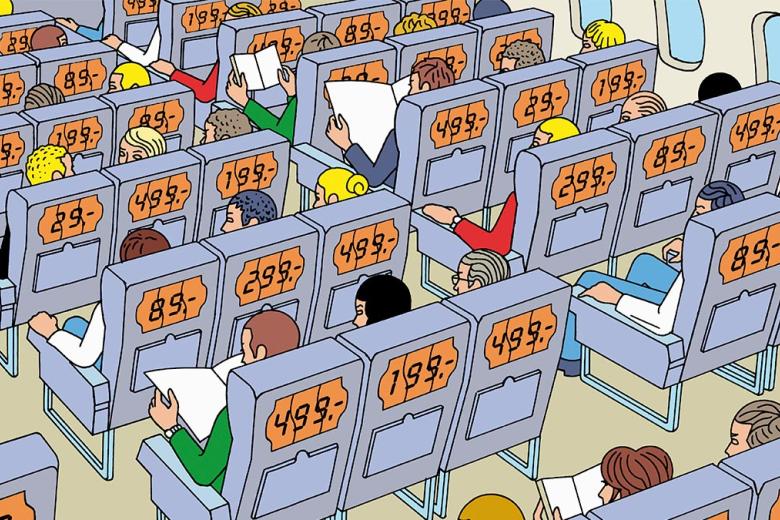Transposition of the ECN+ directive in Albania: the mistaken approach
This blog analyses the obligation of Albania to approximate its existing and future competition law with the EU competition acquis, including the need to transpose the ECN + Directive in the pre-accession stage. Then, the blog discusses the approach taken by the Albanian Competition Authority (ACA) to transpose the ECN + Directive is mistaken. It concludes that the harmonisation of public enforcement tools is far from being completed.
Regulation 1/2003 and the Need for an Update
Since 2003, when Regulation 1/2003 came into force, Member States’ national competition authorities (NCAs) have been empowered to fully apply all the aspects of the EU competition rules alongside the Commission. Furthermore, Regulation 1/2003 introduced a close form of cooperation between the Commission and NCAs, notably “the European Competition Network” (ECN). Pursuant to Art 35 of Regulation 1/2003, the ECN has been designed as a complex forum for the exchange of experience on EU competition law and to ensure that the same rules are applied consistently throughout the EU.
While Regulation 1/2003 empowered NCAs to apply the EU competition rules, the procedures for the application of EU competition rules were largely governed by the national law, subject to the principles of effectiveness and equivalence. This means that NCAs apply the EU competition rules based on different procedures. Consequently, some EU Member States have the same main working tools as the Commission, others lack fundamental powers. Moreover, some NCAs have not set their enforcement priorities. Also, there are differences in the scope of investigative powers.
Considering these shortcomings, the enforcement powers set out in Regulation 1/2003 have been expanded by the ECN+ Directive, adopted on 3 February 2019 by the European Parliament and the Council upon the double legal base of Articles 103 and 114 TFEU. The ECN+ Directive empowers national competition authorities to be more effective enforcers and ensures the proper functioning of the internal market. Particularly, the ECN + Directive guarantees the EU national competition authorities the necessary enforcement tools to properly enforce Arts 101 and 102 TFEU. The adoption of the ECN+ Directive represents a novelty in two aspects. Firstly, it is the first where the European Parliament and the Council, based on ordinary legislative procedure, co-legislate in the area of public enforcement of competition law. Secondly, it is the first time that the ECN+ Directive entails harmonisation of public ‘enforcement tools, to bring about a genuine common competition enforcement area’. According to Article 34 (1), the EU MS shall bring into force the laws, regulations and administrative provisions necessary to comply with this Directive by 4 February 2021.
The main novelties introduced by the ECN + Directive are as follows: firstly, the cornerstone of the ECN + Directive is to ensure the independence and resources for all NCAs, since national law prevents many NCAs from having the necessary guarantees of independence, and resources to enforce EU competition rules effectively; secondly, the ECN + Directives introduces common powers that NCAs shall have to enforce EU competition rules effectively. Thirdly, the ECN + Directive empowers NCAs to impose dissuasive fines. Fourthly, the ECN + Directive provides rules governing leniency programmes. It is the first time that legally binding rules have been introduced, instead of soft law commonly used by the Commission so far. The last novelty relates to the rules governing mutual assistance amongst the NCAs, including close cooperation within the ECN+ Directive.
Europeanization of Albanian Competition Law and Transposition of the ECN + Directive
The process of Europeanization of Albanian competition law started in 2003, when the new Law 9121/2003 ‘On the Protection of Competition’, was drafted by the Competition Department with the assistance of Deutsche Gesellschaft für Technische Zusammenarbeit (GIZ). Law 9121/2003 was modelled in line with Articles 101 and 102 TFEU, two main EU competition law regulations [Regulation 1/2003 and Regulation 139/2004], and several Commission notices and guidelines. Law 9121/2003 was last amended in 2010, once the Stabilisation and Association entered into force (April 2009). The 2010 amendment furthered more approximation process and since that time, the ACA has further aligned by transposing EU secondary legislation and several Commission notices and guidelines.
While the EU Member States transposed the ECN+ Directive into their domestic legal system in time, or with some delay, even candidate countries, like Albania, pursuant to the Stabilisation and Association Agreement (SAA) have the obligation to adjust their domestic legal system in compliance with EU acquis and ensure proper enforcement. Under Article 217, the SAA is a mixed agreement or associate agreement where the “Union may conclude with one or more third countries or international organisation agreements establishing an association involving reciprocal rights and obligations, common action and special procedure”. One of the aims of the SAA is the approximation of the domestic legal system. According to Article 70 (1) of SAA, both parties “recognise the importance of the approximation of Albania’s existing legislation to that of the Community, and its effective implementation”, and “Albania shall endeavour to ensure that its existing laws and future legislation shall be gradually made compatible with the Community acquis”.
Article 71 of the SAA contains the competition provisions. The first paragraph deals with agreements that shall be incompatible in so far as they may affect trade between the Community and Albania. Whereas, Article 71 (2) of the SAA stipulates that any practices contrary to this Article ‘shall be assessed on the basis of criteria arising from the application of the competition rules applicable in the Community, in particular from Articles 81, 82, 86 and 87 of the Treaty establishing the European Community and interpretative instruments adopted by the Community institutions’. Reading jointly Art 70 and 71 (1) and (2), it can be concluded that Albania as a candidate country has an obligation to refer to EU competition acquis concerning agreements considered incompatible and affect trade between the Community and Albania even in the pre-accession phase. In other words, the competition law is a privileged area, where EU competition rules are directly applicable and have a direct effect even though Albania is not yet an EU Member.
Lately, on 30 June 2020, the ACA adopted the Guideline on ‘empowering Albanian Competition law as amended for ensuring proper functioning of the internal market’ (hereafter the Guideline). The Guideline contains 62 recitals and 30 provisions. The ACA, as a responsible institution to further the harmonization of competition rules, has relied on the literal transposition approach with one exception. Instead of referring to the EU competition rules, the Guideline provision cites only domestic legislation, respectively Article 4 (Restrictive Agreement) and Article 9 (Abuse with Dominant Position).
The Mistaken Approach to the transposition of the ECN+ Directive into Albanian Domestic Law
While this guideline is welcomed as Albanian competition law is approximated with EU acquis and most importantly, empowers ACA to have necessary guarantees of independence, resources, and enforcement and fining of Albanian competition rules, in practice, the adoption of this guideline does not bring any binding effects.
Pursuant to Article 288 TFEU, the directive is binding, as to the result to be achieved, but Member States enjoy the discretion on the choice of form and methods. Looking at the MS experience, the ECN+ Directive has been transposed through a legally binding instrument into the domestic legal system. Some countries have amended the existing legislation, whereas others have introduced specific legislation.
In the case of Albania, the transposition of the ECN+ Directive through a soft law (guideline) is mistaken. As Albania has signed the SAA and aspires to join the EU, the existing and future legislation should be changed to comply with the EU acquis. Consequently, the transposition of the EU binding instruments, in our case the ECN + Directive shall be done either through enacting new laws or amending the existing ones, whereas, the Commission’s soft laws can be transposed through ACA’s by-laws.
On the other hand, from the Albanian perspective, Article 118 of the Albanian Constitution as amended stipulates that by-laws are issued on the basis of and for implementation of the laws. In other words, it is the law that provides the legal base, the need for adoption of sub-laws, the responsible institution to enforce and issues to be regulated. In our case, Albanian Competition law remains silent on this issue. It does not provide a legal base for the adoption of guidelines. Secondly, the Guideline, in itself, has an explanatory character for understanding properly Article 4 and 9 of Albanian Competition law. Thus, instead of transposing through a binding act, the ACA opted out for an explanatory document.
Conclusion
This article concludes that the harmonisation of public enforcement tools is far from being completed. Considering the transposition experience of EU Member States, Albania has to incorporate the ECN+ Directive through a legally binding act enacted by the Albanian Parliament instead of a soft regulation. A proper transposition requires either amendment of Albanian competition legislation, or enactment of a specific law to empower the ACA to be more effective enforcers.
| This guest blog was written by Gentjan Skara and Bojana Hajdini for the IGIR and METRO Faculty of Law Maastricht #COMIPinDigiMarkts2022 project - More blogs on Law Blogs Maastricht |
This guest blog is part of the project #COMIPinDigiMarkts2022. These blogs have been specially prepared by participating internal and external project members and focus on competition law and IP law, with particular reference to the digital markets.

-
The digital market competition with multisided markets: a case of Indian e-commerce
Digital platforms are one of the key developments in facilitating industry 4.0 and are at the center of the multifold benefits the consumers derived through this. An important feature of the digital platforms is the presence of high sunk costs and low marginal costs (UNCTAD, 2019). This occurs since...

-
Why AI-enabled price discrimination is not always undesirable: lessons from law and economics
Digitalization has gradually changed business models and reshaped human lifestyles. The rise of business models based on the collection and processing of consumer data allows undertakings to charge business customers and final consumers different prices for the same goods or services, offered at...

-
Google v. Oracle: reimplementing application program interfaces does not infringe copyright
The drafters of EU Computer programmes Directive were aware of the competition law implications of extending protection to the interfaces necessary to enable interoperability of programs and devices. Neither the U.S. Congress nor the CONTU seemed to think of interoperability. So the U.S. Copyright...
